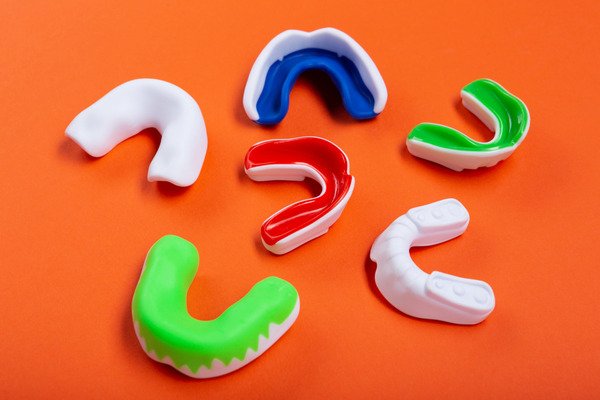
When you're growing up, losing your teeth feels like a rite of passage into adulthood. However, as an adult, experiencing tooth loss can be a distressing and costly experience that can affect your confidence and general health.
There are a number of reasons why you might experience tooth loss in your adult life, ranging from poor eating habits to harmful behaviours picked up over time.
Luckily, the best way to prevent tooth loss in adulthood is to understand the associated causes and to take measures against them.
1. Poor Eating Habits

A common cause for tooth loss, as explained succinctly by Oral-B, is poor eating habits eventually resulting in substantial tooth decay when left untreated.
Everything that we consume has an effect on our oral health. Foods that contain high levels of sugar can significantly contribute to tooth decay, as harmful oral bacteria actually feed on the sugars you eat to create acids that slowly destroy your tooth enamel. These cavities can progress past the tooth enamel and into the deeper layers of your teeth, cause significant pain and eventually tooth loss.
Regularly consuming food and drinks that contain high levels of sugar and acidity will increase your chances of cavities, and left untreated, these will progress. Fortunately, a change in diet that reduces your sugar intake, and increases your consumption of low-acidity and low-sugar foods such as water, milk, veggies and whole grains will keep your teeth strong and cavity free.
Regular trips to the dentist for check ups and teeth cleaning will also help to reduce your chances of decay and potential tooth loss.
2. Bad Oral Hygiene
One of the leading causes for loose and shifting teeth is the inflammatory condition known as periodontal disease (or gum disease). According to the National Institute of Dental and Craniofacial Research, periodontal disease affects not only your gums but also the ligaments and bone that surround and support your teeth.
While our mouth's are full of bacteria, mucus and other particles, periodontal disease is caused by bacteria found in dental plaque (that white, sticky stuff found around your teeth) that can harden and form 'tartar' that simply brushing won't get rid of.
This condition typically develops from poor oral hygiene, through a lack of sufficient brushing, flossing and general oral hygiene care taken. You'll notice the development of periodontal disease through evident symptoms, such as red or swollen gums, bleeding when brushing, receding gums and painful chewing.
Of course, if left untreated the supporting structures of your teeth (including surrounding bone) can be destroyed, which will eventually result in loose or lost teeth.
3. Accidents

Unfortunately, one of the leading contributors to tooth loss globally, is traumatic dental injuries and accidents. From cars, bikes and sports injuries, to falls, fights and collisions - the causes of accidental tooth loss are vast and somewhat common. The majority of incidents will result in partially damaged or chipped teeth but, depending on the severity of the accident, could result in tooth loss.
When it comes to preventing this type of traumatic tooth loss, it usually comes down to conscientious prevention. For example, always wearing mouth guards and protective head gear when playing contact sports, and being vigilant with wearing a seat belt when driving.
Of course, sometimes even the best methods or prevention can't stop an accident from occurring. When this happens, there are plenty of options available to replace missing teeth and restore your smile after an accident. If you're interested in reading more about the different options available, take a look at our blog: Dentures vs. Dental Implants - you'll be able to weigh up the pros and cons of each.
Alternatively, book a consultation with a specialist who can talk you through the most advantageous procedure for you.
4. Harmful behaviours
Sometimes it's not always food, hygiene or unfortunate accidents that result in tooth loss, it's habits and harmful behaviours that we develop over time. There are two really common examples of these behaviours; teeth grinding and smoking.
- Teeth Grinding
The grinding of one's teeth (or bruxism), usually while sleeping, does not usually cause harm unless grinding is a regular occurrence. Chronic grinding can wear teeth down to stumps, loosen teeth, and in severe cases, cause complete tooth loss.
The problem is, sometimes people aren't even aware that they're a frequent teeth grinder, as it happens in a semi-conscious state. If you suspect you're grinding your teeth, make sure to chat to your dentist who can examine your mouth and jaw for signs of bruxism.
- Smoking
Another common cause of tooth loss over time is smoking. In fact, a study published in the Journal of Dental Research showed that male smokers were up to 3.6 times more likely to lose their teeth than nonsmokers, and that female smokers were found to be 2.5 times more likely. The reason for this is duel-effect of smoking as a leading cause of periodontal disease (explained above), but also the compounding issue of masking gum bleeding, which is one of the easiest ways to tell you have developing gum disease.
Smokers often live with unnoticed severe periodontal disease which will eventually result in tooth loss. Fortunately, through quitting smoking, smokers can very quickly help their oral health and reduce the risk of tooth loss.

5. Wider Health Issues
Our bodies, general health and oral health are all interlinked, and often wider health issues have a significant impact on the possibility of tooth loss. A good example of this is people living with type 2 diabetes often also struggle with gum disease, cavities and other oral health problems.
There's a strong correlation between a high blood sugar level and a physical toll on your teeth and gums: the higher your blood sugar level, the greater the supply of sugars and starches — and the more acid wearing away at your teeth. Unfortunately, a health issue like diabetes and its link to tooth loss is cyclic in nature. Poor general health can cause diabetes, which in turn causes teeth an gum issues and eventual tooth loss. Then, loss of teeth can cause issues with self-esteem, change eating patterns and contribute to overall poor health issues.
It's important to take care of your body and your health as a whole, in order to prevent oral health issues and potential tooth loss. The problem doesn't always start at your mouth.
Worried about tooth loss?
If you're experiencing worries around tooth loss, general oral health issues or have perhaps lost a tooth already, it's really important to get in touch with your dentist as soon as possible to diagnose your issue and look for an appropriate fix.
If you have lost a tooth already and would like it replaced with a dental implant our experienced team of Oral Surgeons are ready to help. Simply click below and book in your first appointment - they'll answer all of your questions in person!